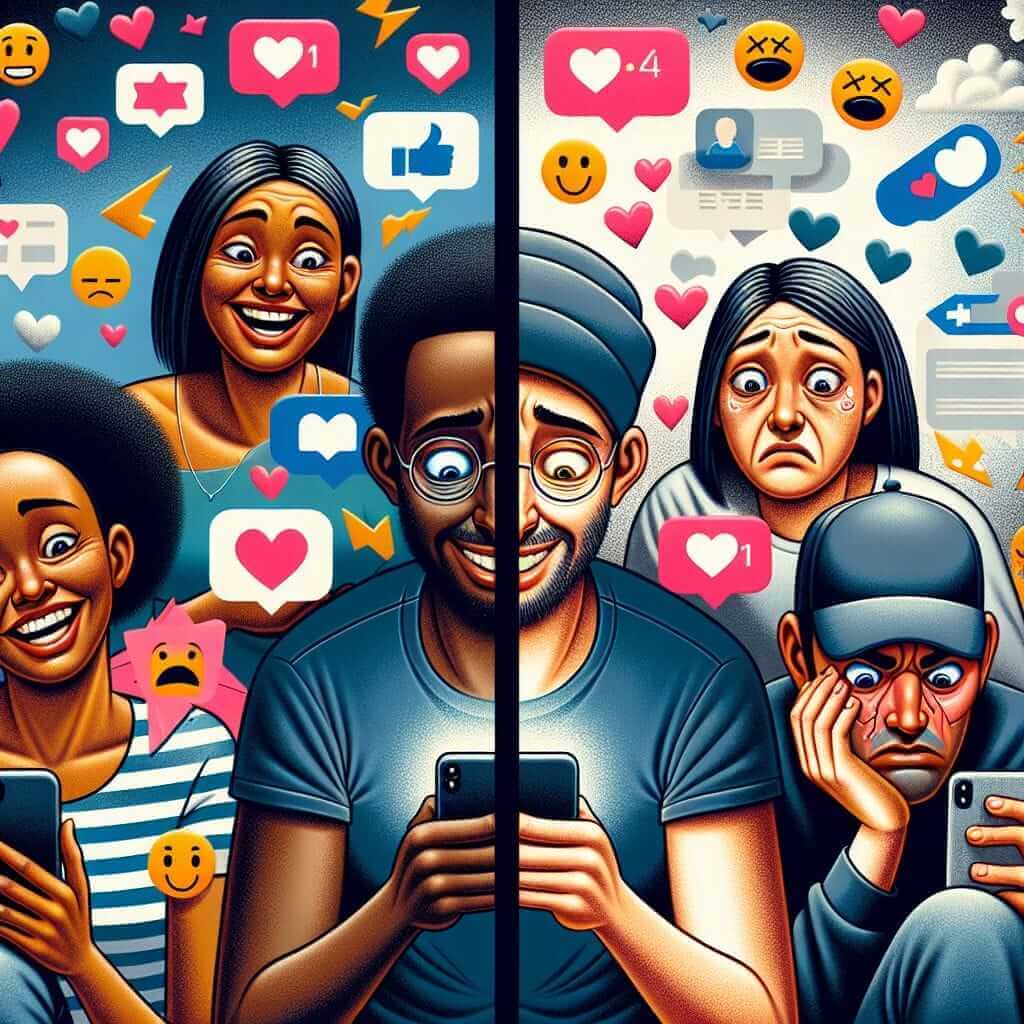The IELTS Reading test can be challenging, especially when tackling current and complex topics. One such topic is the impact of social media on mental health during the pandemic, which has been a common subject of interest in the recent past due to its relevance and significance. This article aims to provide an IELTS Reading practice text along with questions, answers, vocabulary, and grammar necessary for mastering this section.
Given its timeliness and the pivotal role of social media in today’s world, this topic may very well appear in future IELTS exams. Understanding how to navigate such texts will significantly enhance your reading comprehension and overall performance.
Practice Reading Passage
The Effects of Social Media on Mental Health During the Pandemic
In the wake of the COVID-19 pandemic, social media usage saw a dramatic increase worldwide as people sought ways to stay connected amidst lockdowns and social distancing measures. While social media platforms provided a valuable means for communication and entertainment, they also had notable effects on users’ mental health.
Research conducted during the pandemic has shown a mixed bag of results regarding social media’s influence on psychological well-being. On the one hand, these platforms offered much-needed social support and engagement, which could mitigate feelings of loneliness and isolation. For instance, virtual communities and support groups flourished, providing spaces for individuals to share experiences, seek advice, and find solidarity during uncertain times.

However, the increased screen time and exposure to an overwhelming influx of information also had detrimental effects. Many users reported heightened levels of anxiety and stress, often linked to misinformation, negative news coverage, and the pressure to maintain a certain online presence. The phenomenon of “doom scrolling,” where users continuously consume negative news, exacerbated feelings of helplessness and despair.
Another critical aspect is the comparison culture prevalent on social media, intensified during the pandemic. Users who frequently engage in social comparison often experience lower self-esteem and greater levels of depression. This is particularly evident when individuals compare their own lives unfavorably to the curated, often unrealistic portrayals they see online.
In addition to mental health concerns, the pandemic underscored the digital divide, revealing that not everyone has equal access to the internet or digital literacy. This divide means that vulnerable populations may be disproportionately affected, unable to benefit from the positive aspects of social media while still being exposed to its adverse effects.
In conclusion, while social media has played an indispensable role in maintaining connections during the pandemic, its impact on mental health is multifaceted, with both positive and negative outcomes. Future strategies should focus on maximizing its benefits while mitigating its potential harms to safeguard users’ mental well-being.
Questions
Question Type: Multiple Choice
-
According to the passage, what was one positive effect of social media during the pandemic?
- A. Increased levels of anxiety
- B. Mitigation of loneliness
- C. Exposure to misinformation
- D. Feelings of helplessness
-
The term “doom scrolling” refers to:
- A. Spending time on supportive communities
- B. Continuously consuming negative news
- C. Sharing positive experiences online
- D. Engaging in creative activities
Question Type: True/False/Not Given
-
Research during the pandemic shows that social media only had negative effects on mental health.
- True
- False
- Not Given
-
The digital divide has decreased during the pandemic.
- True
- False
- Not Given
Question Type: Sentence Completion
-
Many users reported heightened levels of anxiety and stress, often linked to __.
-
__ means that vulnerable populations may be disproportionately affected by the digital divide.
Answer Key and Explanations
Multiple Choice
- B. Mitigation of loneliness – The passage mentions that social media platforms provided social support and engagement, mitigating feelings of loneliness and isolation.
- B. Continuously consuming negative news – “Doom scrolling” is described as continuously consuming negative news, contributing to feelings of helplessness and despair.
True/False/Not Given
- False – The passage indicates that social media had both positive and negative effects on mental health.
- False – The digital divide has been highlighted as a significant issue during the pandemic, indicating it has not decreased.
Sentence Completion
- Many users reported heightened levels of anxiety and stress, often linked to misinformation, negative news coverage, and the pressure to maintain a certain online presence.
- The digital divide means that vulnerable populations may be disproportionately affected by the digital divide.
Common Errors and Tips
Common Errors
- Misinterpreting the Passage: Make sure to understand the author’s point of view and the key arguments.
- Overlooking Specific Details: Pay attention to details that could be critical for answering True/False/Not Given questions.
Tips
- Practice skimming for general ideas and scanning for specific information.
- Work on developing a strong vocabulary, as understanding complex words can aid in comprehension.
Vocabulary
- Mitigate [verb]: To make less severe.
- /ˈmɪtɪɡeɪt/
- Anxiety [noun]: A feeling of worry, nervousness, or unease.
- /æŋˈzaɪɪti/
- Solidarity [noun]: Unity or agreement of feeling or action.
- /ˌsɒlɪˈdærɪti/
- Misinformation [noun]: False or inaccurate information.
- /ˌmɪsɪnfəˈmeɪʃ(ə)n/
- Disproportionately [adverb]: To an extent that is too large or too small in relation to something else.
- /ˌdɪsprəˈpɔːʃ(ə)nətli/
Grammar
- Cause and Effect Conjunctions: Understanding how to use “because,” “due to,” and “since” can clarify cause and effect relationships in passages.
- Example: “Many users reported heightened levels of anxiety and stress, often linked to because of misinformation.”
- Relative Clauses: Using relative clauses effectively can add depth to your sentences.
- Example: “Users who frequently engage in social comparison often experience lower self-esteem.”
Final Advice
Focus on practicing a variety of reading passages on current and significant topics. Keep expanding your vocabulary and honing your grammar. Always pay attention to both the details and general meaning to excel in the IELTS Reading test. Remember, consistent practice is key to achieving a high score.